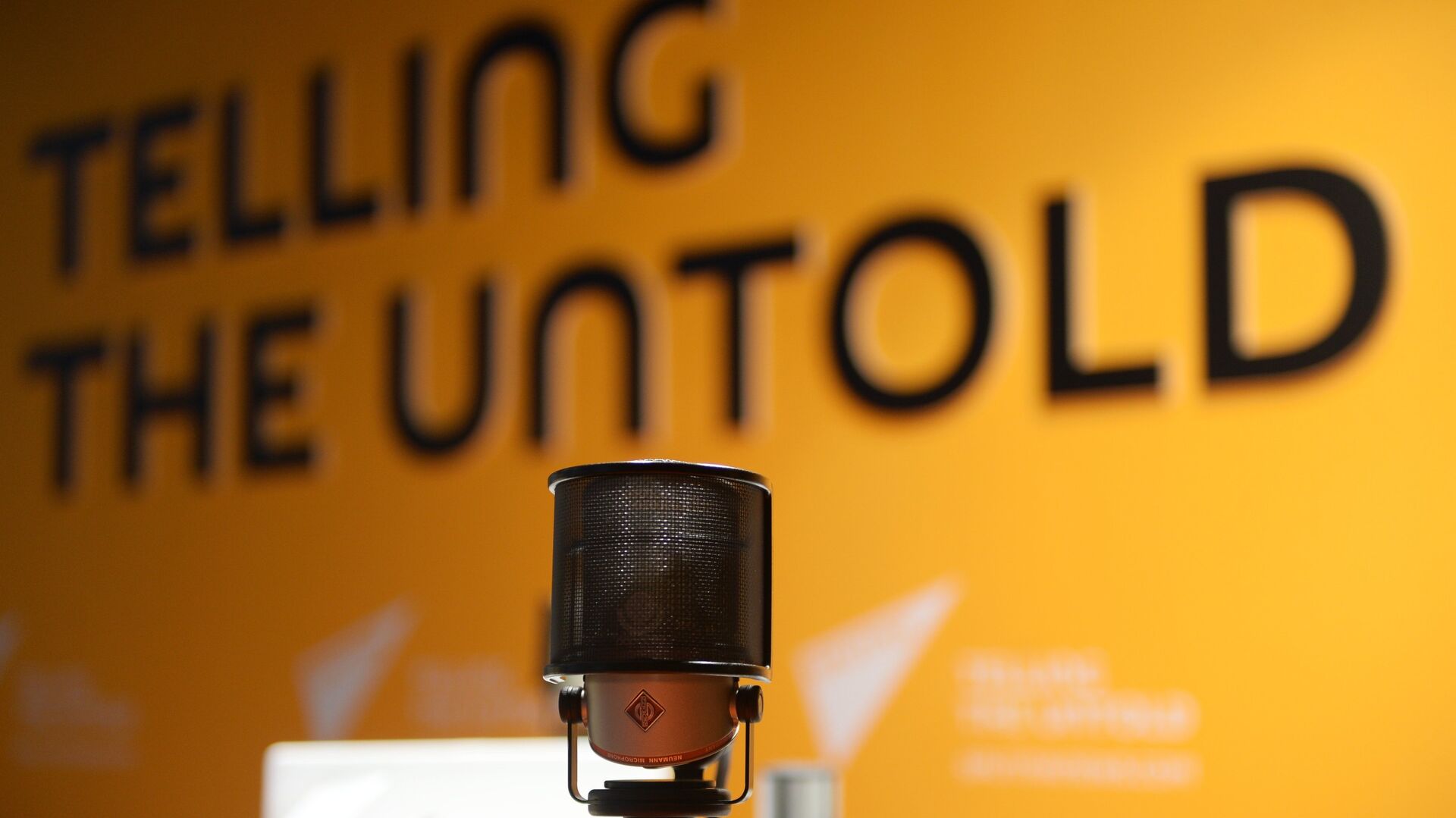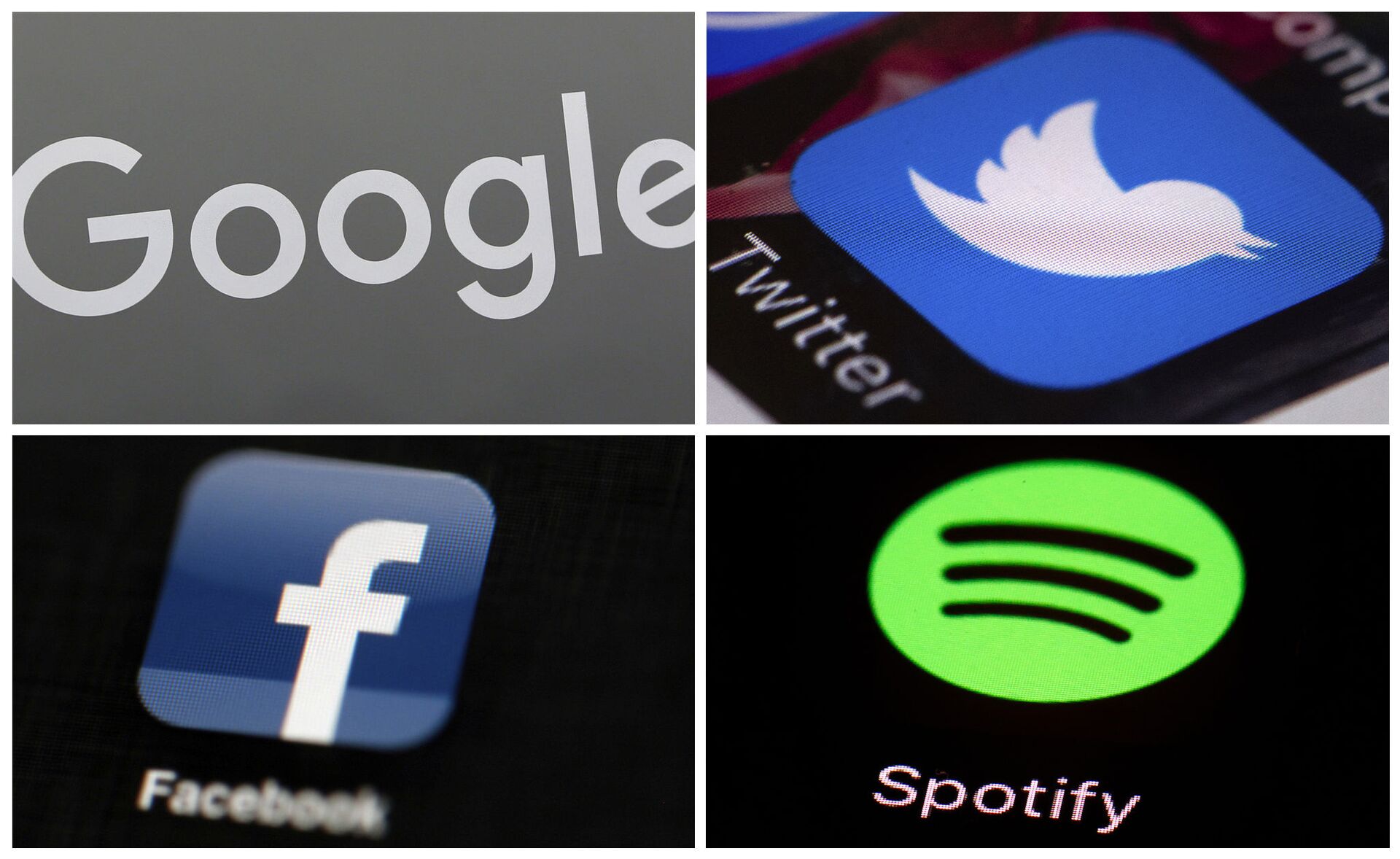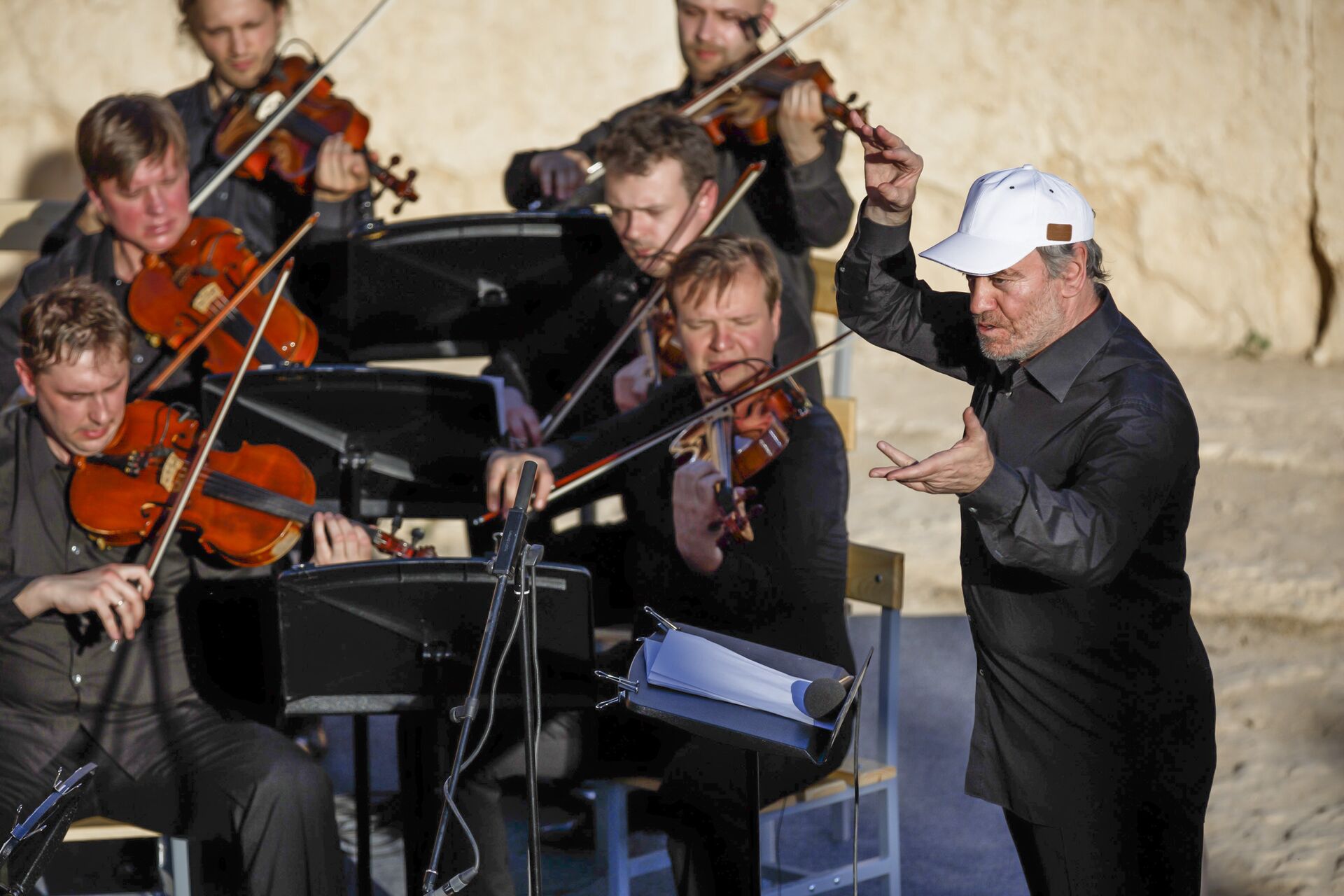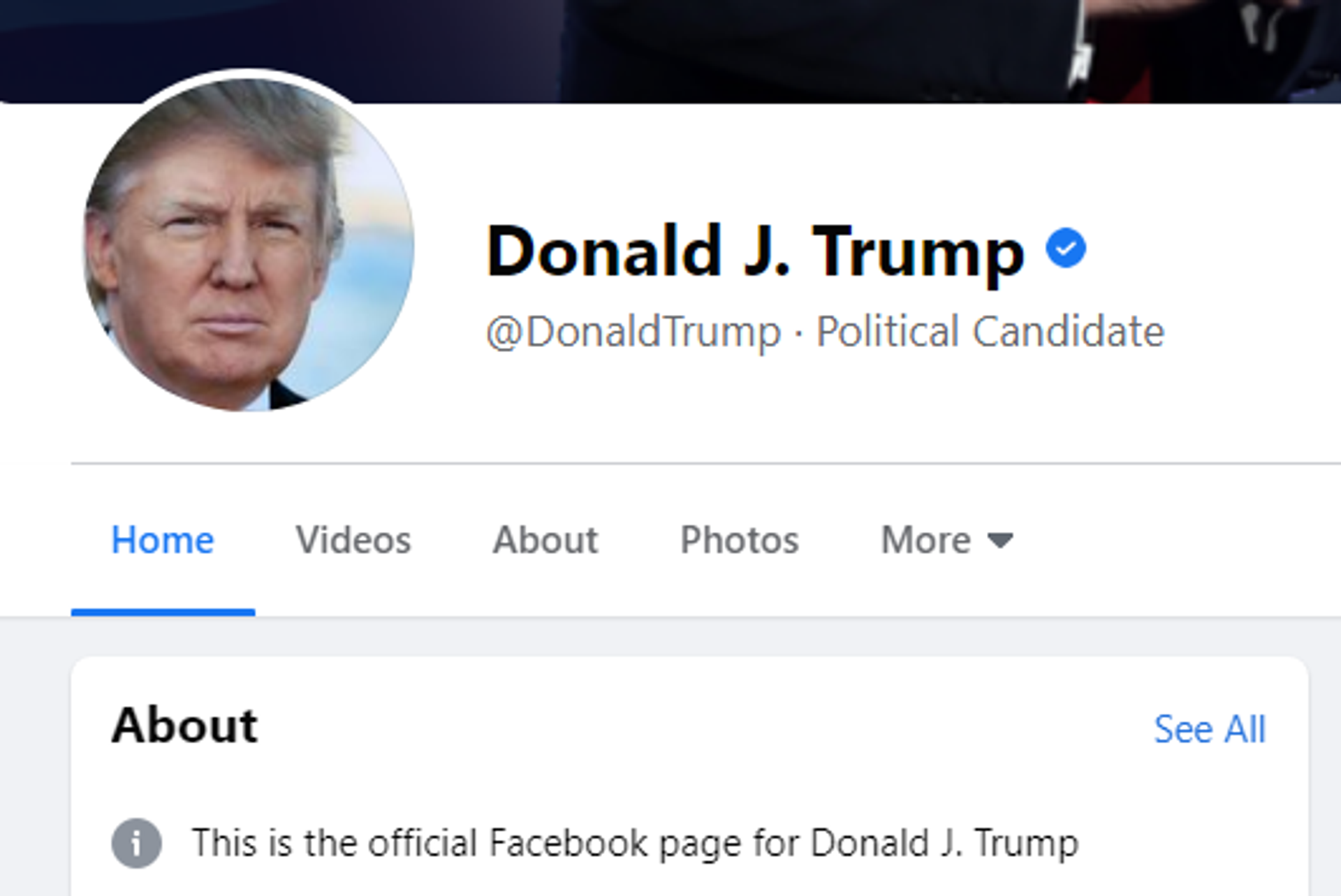West's Censorship of RT, Sputnik & Psy-Ops Against Russians is Sign of Weakness, Say US Analysts
11:04 GMT 03.03.2022 (Updated: 05:40 GMT 30.04.2023)

© Sputnik / Konstantin Chalabov
/ Subscribe
On Wednesday the EU banned Russia's RT and Sputnik within the bloc as the pressure grows from western sanctions over Moscow's special operation to de-militarise and de-nazify Ukraine. Russophobic hysteria is swirling across Europe and North America with Russian workers, musicians and even children being ostracised and bullied.
"Unfortunately, the measures taken by the European Union to censor Russian 'state-affiliated' media are being followed in the United States and I fear the suppression of free speech and means of communication will only get worse as the new Cold War escalates," says Max Parry, American independent journalist and geopolitical analyst. "For example, Direct TV has expelled the English language RT America from its line-up."
As RT and Sputnik prepare to be taken off the air and offline in the EU, Parry feels this will have the opposite effect to what is intended. According to the journalist, this is a sign of real weakness on the part of the West's political establishment because Russia state media has a relatively minimal share of the global market.
Banning RT and Sputnik "corresponds with the West's values quite well," echoes Alex Krainer, a political analyst and author.
"It was only seven years ago, after the 'Charlie Hebdo' terror attack in Paris that western leaders were climbing over one another to grandstand and profess their unwavering commitment to freedom of speech while advocating and implementing censorship of those whose views challenged the various agendas of the ruling establishment," Krainer says.
According to the author, freedom of speech is only allowed "within a spectrum of either irrelevant viewpoints or those that are favourable to the ruling establishment's agenda." And he can't recall any major American outlets being blocked on social media during US-led invasions into Yugoslavia, Afghanistan, Iraq, Libya or Syria.

This photo combo of images shows, clockwise, from upper left: a Google sign, and apps for Twitter, Spotify and Facebook. YouTube, Facebook, Twitter, Spotify and other sites are finding themselves in a role they never wanted, as gatekeepers of discourse on their platforms, deciding what should and shouldn't be allowed and often angering almost everyone in the process.
© AP Photo / AP Photo
Big Tech's Crusade
Big Tech is pushing ahead with nothing short of an infowar against major Russian media outlets, broadcasters and journalists.
RT and Sputnik News had been banned in all 27 EU member states by Meta's Facebook and Instagram and Google's Youtube even before the bloc announced its official decision. Twitter announced that it would follow Meta and Google's lead after the EU sanctions come into force.
In addition to censorship, Russian Facebook users faced nothing short of a psy-op in the past few days as their feed was awash in advertisements, using or mimicking logos of Russian major broadcasters.
The ads urged Russian civilians to withdraw their cash from banks immediately or take to the streets and protest against the special operation in Ukraine. Profiles using Russian media insignia were registered as "blogs," "web sites" or "news personalities" and had few, if any, followers. Remarkably, before this, Facebook specifically banned "state-run Russian media" from advertising and monetising content on the platform on 26 February.
Other fake ads included claims that thousands of Russian soldiers had either been killed or taken prisoner, and one offered 5Mln rubles to Russian soldiers if they surrendered and gave their heavy weaponry to Ukraine.
"Since the advent of social media, we know that the US State Department has long weaponised these Big Tech platforms for cyber meddling, psychological operations and information warfare," says Parry. "For example, during the Iranian Green Movement demonstrations and the Arab Spring protests in Libya and Syria, the US is known to have used social networks to manipulate and encourage events for its own interests. Former Secretary of State Hillary Clinton admitted as much this week in a televised interview and openly called for the US to retaliate against Russia over its actions in Ukraine with cyber-attacks - an act of war by any standards."
According to Parry, the unfolding infowar against Russia was piloted in 2020 in the US, when Big Tech banned conservative pundits and users, tagged and labelled posts - including those by President Trump - banned the New York Post's explosive revelations about Hunter Biden, the son of Joe (then the Democrats' presidential nominee), and eventually evicted Donald Trump from all social media platforms, in what appeared to be a coordinated move.
However, Trump's handling seems to have opened the American people's eyes, and they have increasingly lost faith in the US' Big Tech and Big Media, according to Krainer.
"It's early days of the Ukraine conflict but it is clear that the American public has long lost confidence in their media," Krainer says. "People sense when they are being lied to and they turn away from those sources and gravitate to those where they sense they're being informed more truthfully. This doesn't happen overnight, but it does happen, as a social/cultural trend spanning many months and even years."

In this Thursday, May 5, 2016 photo provided by Russian Defense Ministry Press Service, the renowned conductor Valery Gergiev, right, leads a performance by the Mariinsky Symphony Orchestra from St. Petersburg, during the concert at the UNESCO world heritage site of Palmyra, the central city of Homs, Syria
© AP Photo / Vadim Grishankin/Russian Defense Ministry Press Service
Russophobia on the Rise in the West
As the US and its NATO allies step up sanctions and censorship against the Russian industries and press, reports of Russophobic rhetoric and actions are emerging in the media.
"I think the most appalling reaction to the events in Ukraine was the controversial suggestion by California's Democrat Congressman Eric Swalwell to expel thousands of Russian students over the events in Ukraine," says Parry. "This egregious and unhinged idea was actually given support by another congressman, a Democrat from Arizona, Ruben Gallego, on social media. For many people, Swalwell's jingoistic comments immediately brought to mind regrettable chapters in American history such as the internment of Japanese Americans during the Second World War."
According to Parry, the fact that Democrat politicians - "who have sharply criticised the immigration policies of Donald Trump - seem to be hypocritically suspending their own morals and principles in regard to Russia, shows how dangerous and xenophobic the anti-Moscow rhetoric and political environment in Washington has become."
These, and other instances of Russophobia, all indicate the kind of Cold War-like atmosphere the West's establishment and their operatives in academia are trying to create, Parry says.
Meanwhile, Norway's Anti-Racist Centre has received a number of reports of incitement and abuse of Russian children in Norwegian schools over Moscow special operation in Ukraine. And last Saturday, All Saints Russian Orthodox Church in Calgary, Canada, was vandalised with red paint.
Earlier this week, the star Russian conductor Valery Gergiev was forced to resign from the Munich Philharmonic orchestra and the Edinburgh International Festival because he was unwilling to condemn Russia publicly, and performances featuring Russian soprano Anna Netrebko have been cancelled across Europe.
On Tuesday, Russia's Ambassador to London Andrei Kelin told journalists that there have been calls in the UK Parliament to debate the deportation of all Russian nationals - approximately 66,000 - from UK territory. "There have been the most outrageous calls In Parliament. For example, to expel all ethnic Russians or to expel all Russian citizens. I have heard that," Kelin said.




